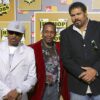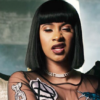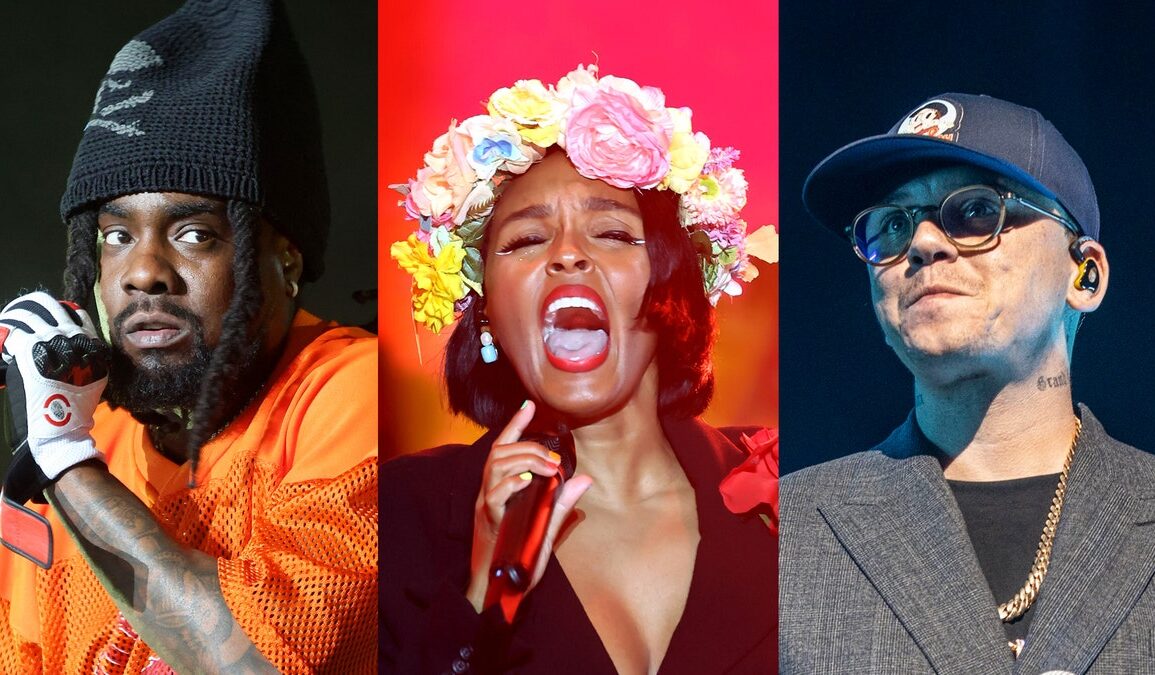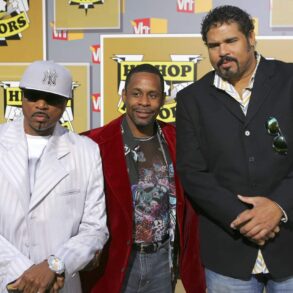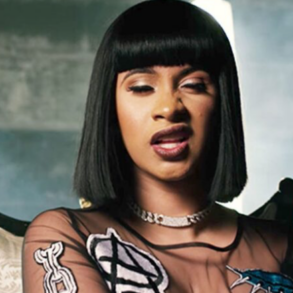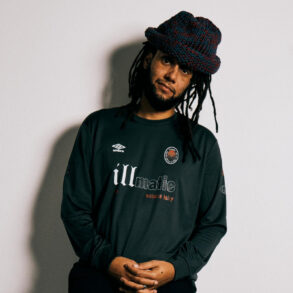Image
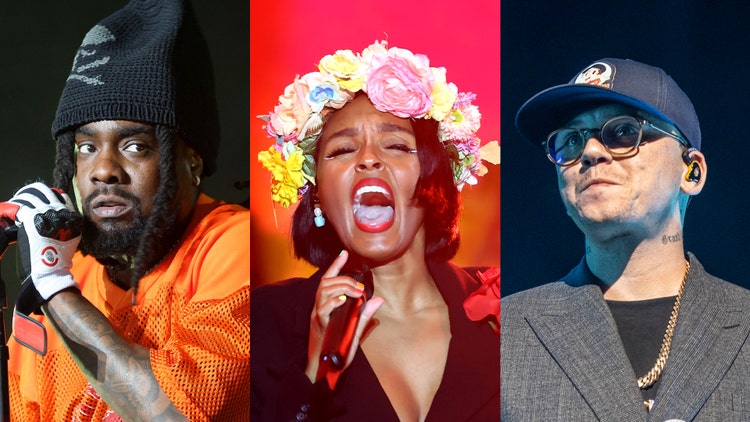
Image Credit
Kayla Oaddams / Contributor via Getty Images, Amy Sussman / Contributor via Getty Images, and Harmony Gerber / Contributor via Getty Images
Image Alt
Wale, Janelle Monáe, and Logic
Image Size
landscape-medium
Image Position
center
Hip Hop has long been a powerful medium for expressing themes of diversity and inclusion. Rooted in the struggles and triumphs of marginalized communities, the genre provided a voice for the voiceless and a platform to address social inequalities. One of the quintessential examples is the song “The Bigger Picture” by Lil Baby. This anthem of sorts directly challenged systemic racism and called for unity and empowerment among African Americans. The song’s powerful lyrics and energetic production underscored a message of resistance and solidarity and made it an enduring symbol of the fight for social justice.
Another notable track is “Same Love” by Macklemore and Ryan Lewis. The song, which featured an assist from Mary Lambert, advocated for LGBTQIA+ rights and marriage equality. Macklemore’s heartfelt lyrics recounted personal experiences and struggles related to homosexuality and challenged the prevailing norms and biases. Mary Lambert’s poignant chorus, “She keeps me warm,” emphasized the simple humanity and love shared by people regardless of their sexual orientation.
REVOLT compiled a list of 13 songs that exemplified how Hip Hop served – and continues to serve – as a conduit for discussing and promoting diversity and inclusion. Through compelling narratives and resonant messages, these tracks fostered greater awareness and empathy and encouraged listeners to embrace a more inclusive and equitable society. Check them out below.
1. Auntie Diaries – Kendrick Lamar
Kendrick Lamar’s “Auntie Diaries” is a poignant and introspective track from his album Mr. Morale & The Big Steppers. The song delved into Lamar’s personal experiences with his transgender relatives and shed light on issues of gender identity and the complexities of family dynamics. With raw and honest storytelling, Lamar navigated his own growth in understanding and supporting his aunt and cousin, who transitioned from female to male and male to female, respectively. Addressing a separate issue, he also made a clever end-of-song quip about non-Blacks and the use of the N-word.
2. Smile – JAY-Z
JAY-Z’s “Smile,” from his critically acclaimed album 4:44, was a deeply personal and revealing track that explored the complex nature of love and family. In the song, Hov opened up about his mother’s struggles with her sexuality and her journey toward self-acceptance. The matriarch in question, Gloria Carter, delivered a moving spoken-word outro in which she discussed coming out as a lesbian and the liberation she feels from living her truth. “Smile” wasn’t just a tribute to JAY-Z’s mom, but it was also a broader commentary on the importance of embracing one’s true self and the freedom that comes with it.
3. Shades – Wale
Wale‘s “Shades,” featuring Chrisette Michele, was a profound and reflective track from his debut, Attention Deficit. The song addressed issues of colorism within the Black community, as well as the rapper’s personal experiences growing up with dark skin and the internal and external struggles that came with it. Additionally, Wale explored the pressures and prejudices that often lead to a preference for lighter skin tones, both within and outside the Black community.
4. Between Me, You & Liberation – Common and CeeLo Green
Common’s “Me, You & Liberation,” featuring CeeLo Green and produced by J Dilla, was a standout track from Electric Circus. The song was a soulful and introspective exploration of personal and collective introspection about family issues, including one afflicted with illness and another who wanted to live in freedom regarding their sexuality. Green’s hook added to the overall message by calling for liberation.
5. Same Love – Macklemore and Ryan Lewis
Macklemore and Ryan Lewis’ “Same Love” was a groundbreaking anthem that boldly addressed LGBTQIA+ rights and equality. Released as part of their album, The Heist, the song challenged norms and advocated for love and acceptance regardless of sexual orientation. Macklemore’s heartfelt lyrics drew from personal experiences and observations, and highlighted the struggles faced by individuals in a world often plagued by discrimination and prejudice. The track’s chorus, sung by Mary Lambert, reinforced its message of inclusivity.
6. We’re All In The Same Gang – The West Coast Rap All-Stars
The West Coast Rap All Stars’ “We’re All In The Same Gang” was released during a time of heightened racial tensions and social divisions, and the collaboration brought together prominent West Coast artists to advocate for peace and solidarity. Through the song’s powerful lyrics, artists like King Tee, Tone Loc, Ice-T, Dr. Dre, and MC Hammer promoted the idea that, regardless of background or neighborhood, everyone shared common goals and aspirations.
7. AfricAryaN – Logic
Logic‘s “AfricAryaN,” from his album Everybody, is a thought-provoking exploration of identity and race. The song was centered around Logic’s mixed-race heritage, which left him grappling with the complexities of being both African American and white. As such, the Maryland native took aim at perceptions and explored themes of belonging.
8. Q.U.E.E.N. – Janelle Monáe and Erykah Badu
The R&B and Hip Hop hybrid track “Q.U.E.E.N.” Was said to have drawn inspiration from private conversations between the Janelle Monáe and Erykah Badu. The track, taken from The Electric Lady, challenged stereotypes and celebrated empowerment across various marginalized groups. The acronym in the title stood for Queer, Untouchables, Emigrants, Excommunicated, and Negroid, which reflected its focus on LGBTQIA+ rights, poverty, immigration, incarceration, and racial identity.
9. The Bigger Picture – Lil Baby
“The Bigger Picture” was a powerful protest song that released amidst nationwide protests against police brutality and racial injustice. As such, the song addressed systemic racism, police violence, and the broader social issues affecting African American communities. Lil Baby also reflected on his personal experiences and the broader implications of racial discrimination while calling for unity and systemic change.
10. Where Is The Love? – Black Eyed Peas
The socially conscious “Where Is the Love?” addressed various social and political issues, including terrorism, racism, discrimination, and violence while questioning the lack of empathy and compassion in the world. The Elephunk offering became a global anthem thanks to its promotion of peace and tolerance, which resonated with audiences and sparked important discussions about the need for positive change in society.
11. None Of Your Business – Salt-N-Pepa
Salt-N-Pepa‘s “None of Your Business” is a defiant and empowering song that boldly challenged double standards and criticism aimed at women’s personal choices. With its assertive lyrics and infectious beat, “None of Your Business” encouraged the ladies to take ownership of their bodies and lives, reject judgment, and assert their right to make their own decisions. The song received acclaim for its feminist message and became a self-empowerment anthem in the process. It’s all about the right to live authentically.
12. I’m Not Racist – Joyner Lucas
Joyner Lucas’ “I’m Not Racist” is a provocative and deeply introspective song that tackled issues of race, prejudice, and societal divisions head-on. As could be seen in a matching video, the song featured a conversation between two characters, a white man and a Black man, each expressing their perspectives on race relations in America. Through raw and confrontational lyrics, Lucas explored the complexities of racism from both sides and shed light on systemic inequalities and personal biases that perpetuate division. The clip ended with a hug and a presumed understanding, solidifying the message of unity and building between the two parties.
13. U.N.I.T.Y. – Queen Latifah
Queen Latifah’s “U.N.I.T.Y.” boldly addressed issues of gender inequality, respect, and empowerment within the context of Hip Hop culture. Through her lyrics, the New Jersey legend advocated for self-respect and solidarity among women, and condemned violence while calling out misogyny and sexism. “U.N.I.T.Y.” became an anthem for empowerment and social change, and remains a call to arms for both issues in modern times.
This post was originally published on this site be sure to check out more of their content.


